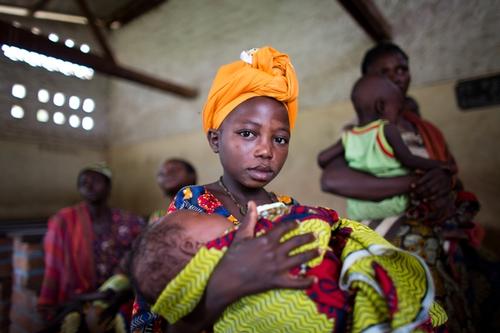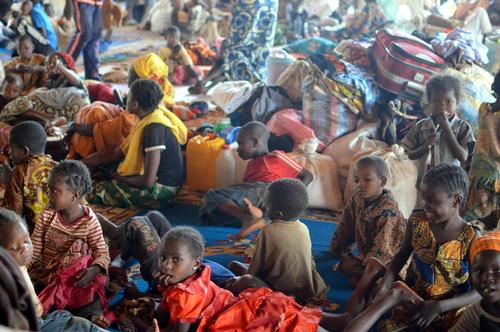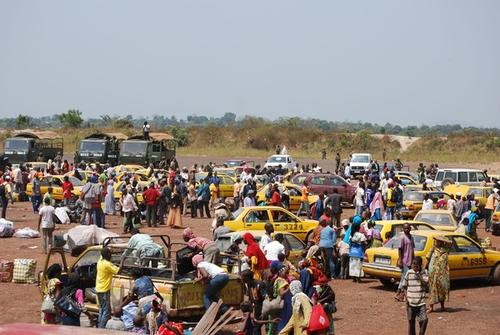Teams treat 26 patients in Bouca suffering machete and gunshot wounds.
Médecins Sans Frontières (MSF) denounces the targeting of civilians in a new wave of violence that erupted in Bouca, 325 kilometres north of Bangui, in Central African Republic. MSF staff treated 26 people, injured either by machetes or gunshots, including eight women and six children. This new wave of violence, in Bouca and also in Bossangoa region, is causing more suffering to civilians already dealing with months of conflict and repeatedly being forced from their home. MSF projects in Bossangoa, Batangafo and Paoua have all seen an increase in patients admitted to health facilities due to violence-related injuries in the last month.
Civilians targeted
Fighting broke out in Bouca at around six in the morning on Monday when armed men, purportedly supporting the ousted president François Bozizé, entered the village. They left the area before a group of Séléka forces returned. Twenty-six injured people were treated by MSF teams, while five people had to be transferred to the hospital in Batangafo due to their critical condition. MSF is deeply concerned by the targeting of civilians and the atrocities committed by both parties in Bouca (an undetermined number of people killed, summary executions, houses burnt down). The medical organisation is also extremely worried about the consequences of the use of inflammatory sectarian rhetoric which started during the Séléka rebellion in March, something that could fuel more violence in the country.
“We are highly concerned about a further escalation in fighting and retaliatory acts of violence,” says Sylvain Groulx, coordinator of MSF projects in Central African Republic.
Neighbours from Bouca fled the village as many houses were burned down, while around 300 people are seeking refuge in a Catholic compound in the town. MSF is planning to start mobile clinics to monitor their situation and that of those hiding in the bush. At present, even more families are being driven from their homes and into the bush during the time when people are most vulnerable to contracting malaria.
Violence-related injuries
In the nearby town of Bossangoa, MSF teams are alarmed to have received more than 25 separate cases of machete and gunshot victims in the last two weeks. This sudden escalation of sectarian violence has heightened the atmosphere of fear within the communities, with thousands of people fleeing the town in search of sanctuary. The organisation is also worried about reported attacks against health workers and strongly condemns the senseless killing of two humanitarian workers from ACTED on 7 September in Bossangoa.
“MSF denounces these horrific acts of violence against the population, and calls on all parties to the conflict to respect the safety of non-combatants and medical and humanitarian aid workers,” says Groulx.
For the moment, MSF maintains its medical activities around the country, those already set up before the March coup d’état and those recently established to respond to the acute needs of people affected by displacement, high levels of malaria and the collapse and absence of the public health system in the country. MSF is operating seven regular projects in the country, while it has recently started emergency operations in four more locations.





